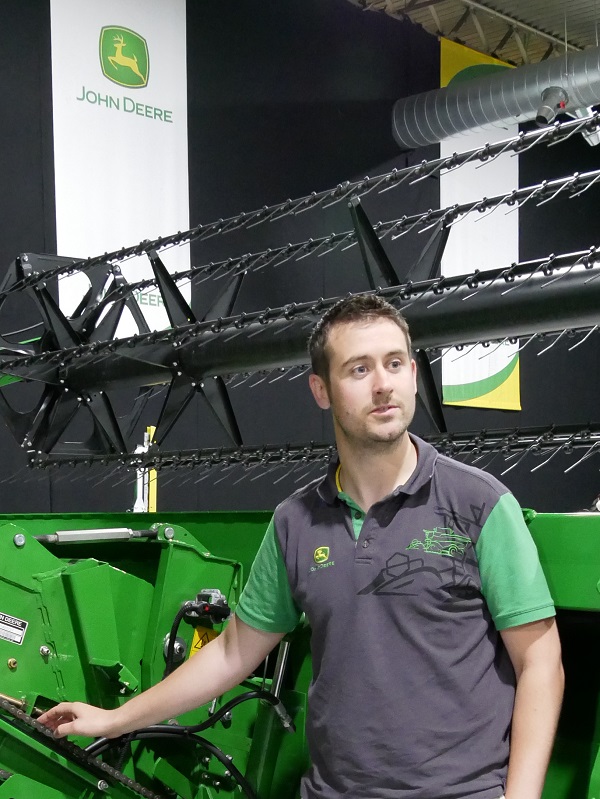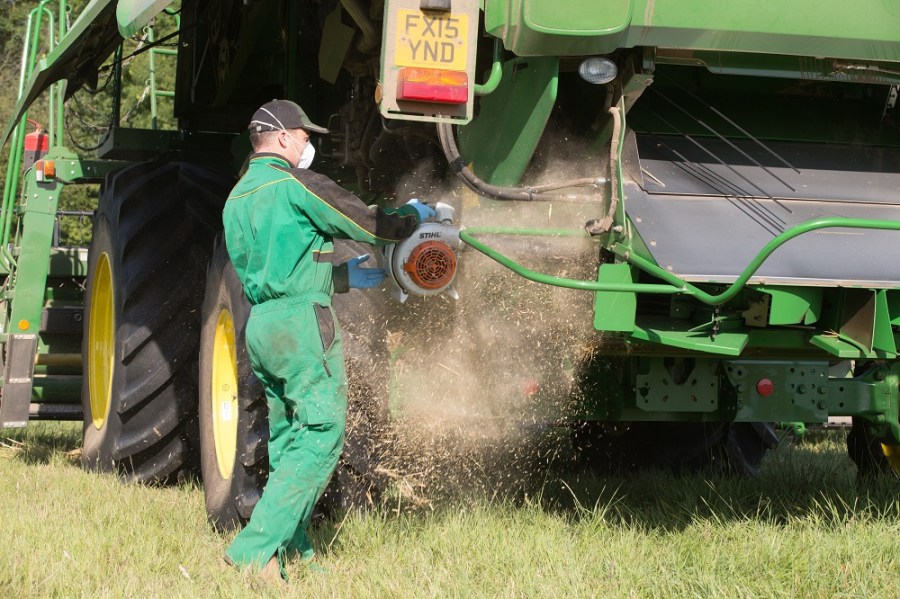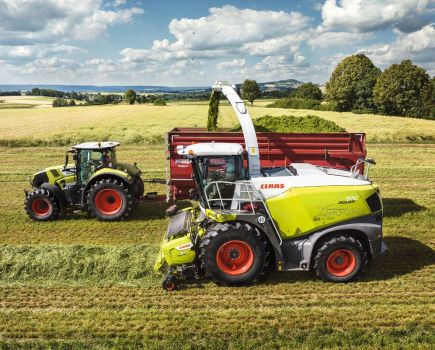BASF has launched a ‘Keep it Clean’ campaign to spread the message that good machinery hygiene is a vital tool in the fight against blackgrass. CPM attended a recent press briefing at John Deere’s Langar facility.
One of the ways of preventing the spread of arable weeds is by keeping your machinery and vehicles clean; it really is just as simple as that.
By Jane Brooks
Kit hygiene is not just good practice, it’s vital to prevent the spread of the invasive blight that is resistant blackgrass. That’s the view from BASF’s Ruth Stanley, who’s also an arable farmer and advocates a whole agronomic approach to weed control, including cultural measures.
“We’ve been told of RRR resistant blackgrass in previously unheard-of places in the UK, including the far north east of Scotland, south west England and Northumberland,” she adds.
Ruth Stanley suggests that one cause of this could be seeds brought in on kit, and she also believes the movement of straw could be a culprit. Some of her top combine-cleaning tips are to:
- Remove large build-ups of debris by hand
- Open all panels on the machine
- Use a leaf blower to remove finer debris and get to places the hand can’t reach
- Check around the wheel axles for seed and chaff build-up
- Open the stone trap and clean inside and don’t forget the header.
Weed seeds are tiny and can easily lodge behind or in structural parts of arable machinery, so undertaking diligent cleaning of combines, balers and other farm machinery during harvest and baling operations is also the recommendation from John Deere’s James O’Meara.

Just 15-30mins spent cleaning the combine will remove plenty of debris, says James O’Meara.
He points out that in common with most manufactures, John Deere combines have an in-cab ‘clean’ function, which once selected enables the operator to blow out the combine without leaving the cab.
Eric Wright of Wrights Agriculture farms an area of 2600ha across Notts and Leics – a mixture of his own land and contract-farmed areas. He recommends that combines are also blown down and then followed by a good run through of the combine’s moving parts, all of which should be carried out on a suitable clean-down area of the farm where the work’s been done.
He also points out that bale chasers and bale trailers can be sources of seed contamination. When engaging agricultural contractors, farmers should ensure their management procedure includes cleaning machinery, in particular combines and balers, between clients, he suggests.
“You really do need to be careful when importing any farmyard manure, unless of course you’ve supplied the straw and know exactly what’s in it, otherwise weed seeds could be imported that way.”
What’s more, he believes that when moving a baler between different farms it’s advisable to have an empty bale chamber to avoid any transfer of weed seeds from part-made bales.
David Sedgley of Silverwood Farms, near Oakham, Rutland, manages 900ha of arable land. “We have blackgrass in every field, we’ve worked hard to clean the bad areas and had some success. I’d like to say we’re winning the battle but it’s an awkward weed and I can’t really say if we are or not.”
He points out one of the first lines of defence is to avoid harvesting heavily infested areas until the end of the season to avoid introducing weed seeds to other fields.
“In common with many farmers with harvest pressure and tight timescales, it can be all too easy to let things slip, we do harvest heavily infested areas last, to maximise combine hygiene, we also find delayed drilling helps.
“We bale where the weed burden is bad to get it off the fields and those bales always go for power station use,” explained David Sedgley, before adding, “Of course, in addition to farm machinery and vehicles just about everything on the farm has the potential to spread weed seeds, from agronomists’ wellies to people walking dogs along public footpaths.”
There’s more information on the BASF ‘Keep it Clean’ campaign online, including top tips from other farmers, practical advice on arable weed control, weed fact sheets and you can leave your own top tips. https://basfrealresults.co.uk/awc/
The website also offers the opportunity to participate in the BASF national arable weed survey, designed to help understand the national weed situation.




